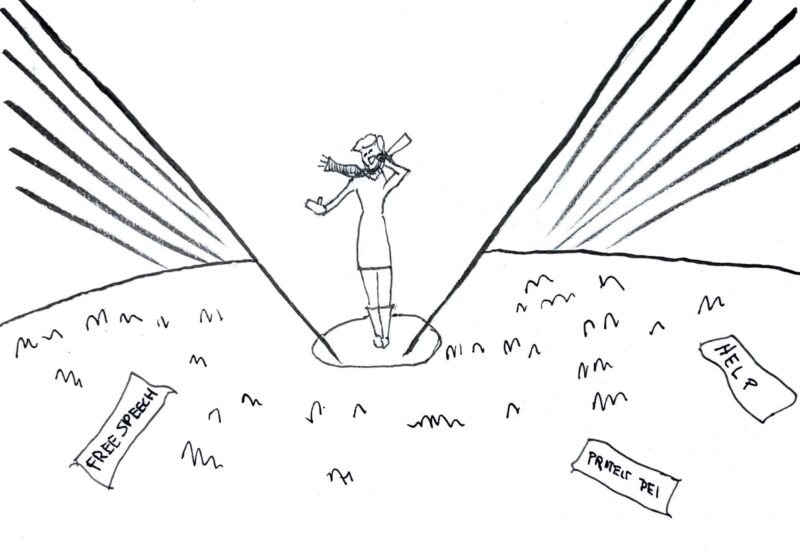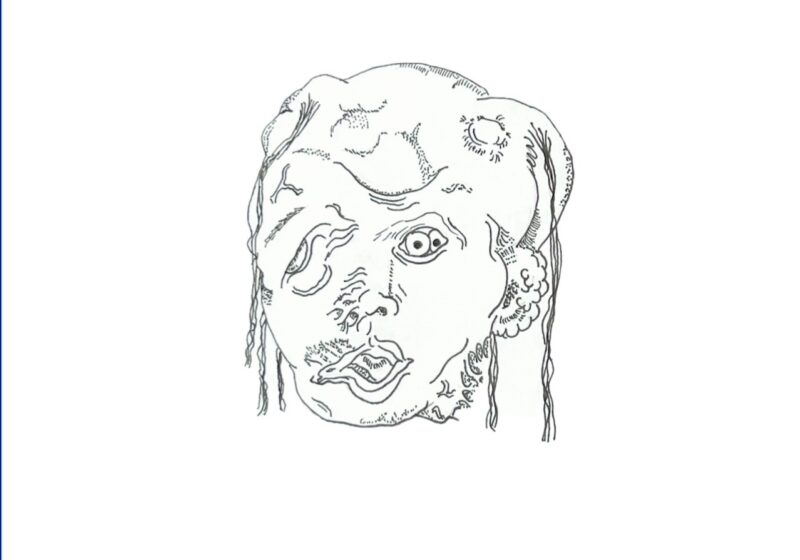The First-Year Students’ Association elections have long been over, but as I walk around campus, I can still see the remnants of what seemed to be a political campaigning battleground.
Leftover flyers from campaigns can still be seen hanging from the Sue B and Genesee bulletin boards, abandoned after having served their purpose. Light hints of chalk still appear faintly across the campus walkways, alluding to what was once a warfront between the student candidates. Even online, the Instagram campaign accounts and cleverly edited posts that many candidates used to market themselves still remain.
In many student elections, candidates promise to make many positive changes to their schools as they share their virtues and list their previous leadership positions. Meanwhile, the students are confronted with flyers around every corner as they are bombarded with slogans and phrases about why they should vote for a certain candidate.
Even without my background as a former campaign volunteer for a politician back in New York City, I could easily recognize these efforts as attempts to gain popularity and support among students. From using taglines and puns to making promises and sharing their professional backgrounds, the candidates used the same ploys that professional politicians employ to boost their popularity. And for many of them, it worked.
Student elections tend to end up as popularity contests. It’s difficult to say that they don’t, considering the efforts candidates invest into boosting their popularity. Such popularity can come from giving their peers a reason to place trust in them, but it can also come from the employment of gimmicks that garner interest.
Such a process may be inevitable. After all, unless there is a huge disparity between the candidates in ability and character, many students would likely vote for the person they’re more familiar with rather than the person they believe is the most capable.
Having witnessed this year’s first-year campaigns from beginning to end though, I was concerned about how they all abruptly came to a pause. When the results were out, there was a moment of silence in which only a few of the candidates spoke about their next steps. The chalk drawings were left out to be washed away, and many of the flyers were left pinned on boards. The hype faded overnight, like a stage left empty with the conclusion of a show.
This left me thinking about how student governments could be seen as a reflection of our current government. All the fanfare and campaigning for the sake of election as politicians attempt to show their good sides, promising to represent the people who vote for them, only for some to turn around and begin working toward their own interests instead.
I don’t think this will happen with our newly elected student association members — at least, not to the same degree as our country’s politicians. I’d like to trust that our newly elected members have integrity, and having met many of them personally, I’m actually looking forward to what they’ll accomplish.
Unfortunately, no one promised to campaign for my ideas of putting little top hats on the rabbits around campus (assuming it does not harm them), and of introducing therapy cats as an alternative to therapy dogs, but still, I’m quite curious how they will accomplish the goals that they actually did list out.
More importantly, I’m curious if they will even complete some of the promises that they made in their campaigns, from opening Danforth on weekends to making the Pit accept swipes for chicken tendies. Were these empty promises for the sake of election, or were they serious about their campaign promises?
Many of the promises that were made are definitely obtainable, but, unlike my proposed idea, the seriousness of those promises remains to be seen. I hope that, unlike some of our currently elected U.S. politicians, our newly elected SA members not only keep true to the promises that they made during their campaigns but also go beyond them and discover their full potential.
I look forward to the future achievements of our elected students’ association members, and I wish them all the best in living up to the University’s Meliora motto.





